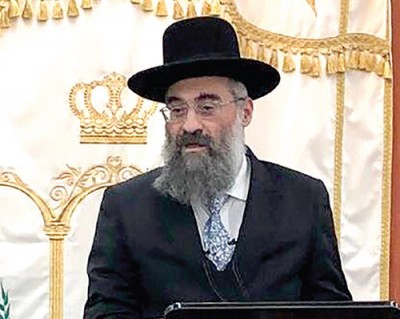
The Torah contains a total of 613 Mitzvot, which are divided as 248 positive commandments, and 365 prohibitions. It is a basic principle of our Torah that Hashem repays mankind for his good and evil. Even so, the Torah did not reveal the reward for the performance of Mitzvot. This is because every Mitzvah has an integral role in the wellbeing of each and every human soul. If we were to know the different rewards for specific performances, we would most likely neglect some of the mitzvot out of interest in pursuing others. The Medrash gives an analogy for this:
A king once tasked his gardener with planting a beautiful garden. The king instructed his workman to include every kind of spice tree, herb, flower, and fruit tree to fill the garden with the greatest variety available. The king wanted to ensure a beautiful garden brimming with variety, even though he recognized that some trees would be more valuable than others. So even though he prepared a different payment for every item planted, the king did not disclose the payment for each variety. The gardener might otherwise be tempted to focus primarily on the expensive set of trees and thus diminish the beauty of the desired garden.
The Torah teaches us that all of Israel has a portion in Olam Haba (a Future World). The question is: what portion does everyone get? We are taught that this is totally dependent on every person’s actions, with both quantity and quality taken in consideration. Even with this being so, there is another important detail about the qualifications for Olam Haba. The Ari Z”L teaches that the soul of a person has has a total of 613 ‘spiritual limbs’ or conceptual parts. The mitzvot we perform in this world with our physical bodies (which are also made up of 613 limbs) affect our spiritual make-up. Therefore, a person lacking the performance of a mitzvah in this physical world can face a mirroring spiritual deficiency. When such a soul then reaches the Ultimate Future, there will be a corresponding blockage between itself and its portion.
With the above in mind, one may wonder why there are so many virtually unattainable mitzvot which are limited to specific people or specific settings. For example, one of the Torah’s 613 commandments is that every first-born male be redeemed by his father. But what if a man has a first-born girl? How can he ever acquire the mitzvah to redeem a first-born son? Similarly, the Torah commands a man to arrange a fence on the roof of his house. But what if a man always rents, or has a house with a gable (slanted) roof? How can he ever perform this mitzvah which is clearly one of 613? There are even some mitzvot that are simply not possible during the current generation, such as all of those which have to do with service in the Beth Hamikdash. So how can anyone reach Olam Haba with a ‘complete Soul’ which is ready to enter its portion? Our Sages provide two answers.
The first way in which every soul is given the opportunity to perfect itself is by the force of its will. If a person truly wishes to do a particular mitzvah but is held back by extenuating circumstances, Hashem counts the good thought as if it were actually a good deed. For example, consider the law regarding a person in the middle of the Shemoneh Esreh prayer (where it is forbidden to interrupt). The law is that if he hears the Shliach Tzibbur begin the repetition of Kedusha, he must pause his prayer and mentally focus on the quorums’ response. He cannot answer along with the quorum because he is still standing in prayer before Hashem. But Hashem counts his desire and will, which is evidenced by his intent, as though it were an actual good deed. Similarly, when a person is faced with a mitzvah opportunity and is held back by a circumstance out of his control, Hashem peers into the heart and will, and rewards a desire to do good as though the good was actually performed. The soul can in this way be infused with perfection in each of its 613 limbs.
The second way in which every soul is given the opportunity to perfect itself is explicitly discussed in the Talmud (Menahot 110): “When a person studies the laws of Olah offerings, it is as if he brings the offering…”. This demonstrates that when a person learns the operative laws of any commandment, Hashem considers it as if the commandment is actually being performed. For example, if a man studies the laws and method of redeeming a first-born son, his soul actually perfects the ‘limb’ which corresponds to that mitzvah. The Sages thus teach us, Talmud Torah K’neged Kulah – the study of Torah is equivalent to its performance.
Both of these methods are combinable as well, and therefore affect the quality of improvement in the corresponding spiritual limbs. The quality and performance of all the mitzvot are therefore attainable for all people, regardless of circumstance, setting or ability. Hashem in this way ensures that every soul has the opportunity to perfect its complete self and acquire the portion set aside for it in Olam Haba. May we all merit to the eternal life of Olam Haba, Amen v’ Amen.
By Adam Suionov
Perfecting The Soul
Typography
- Smaller Small Medium Big Bigger
- Default Helvetica Segoe Georgia Times
- Reading Mode











